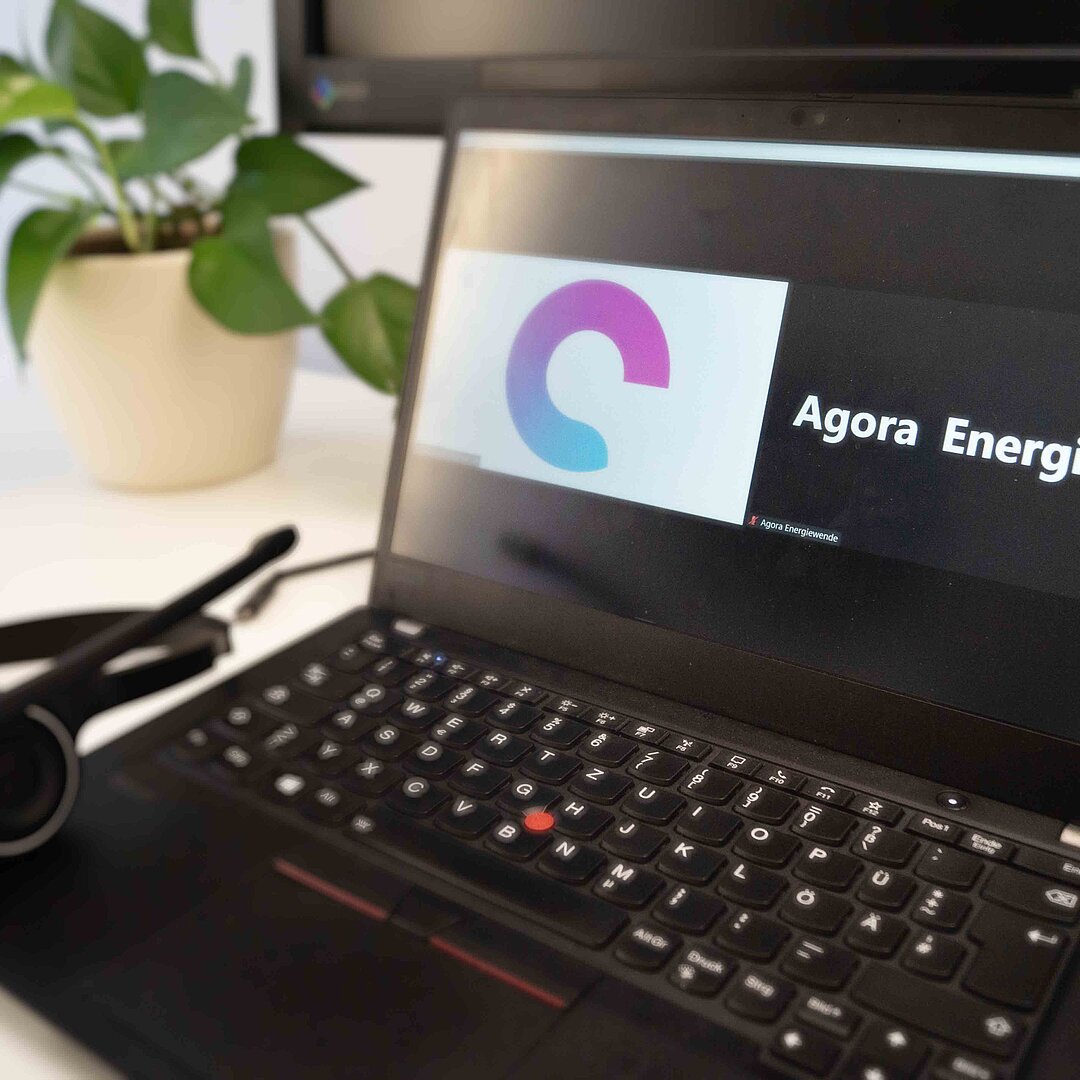Statement by Agora Energiewende on the European Commission’s RePowerEU Plan
To deliver on the climate targets and on energy security at the same time, RePowerEU needs to prioritize the fast reduction of fossil fuel demand and provide additional funding to Member States

Brussels, 18 May 2022. The RePowerEU Plan presented by the Commission on 18 May, is giving too much weight to fossil fuel supply diversification and new fossil infrastructure investments, and too little weight to short-term initiatives on renewables or on heat pumps that will permanently reduce demand and the EU’s overall reliance on fossil fuels.
Matthias Buck, Director Europe:
“RePowerEU gives too little attention to concrete initiatives that reduce fossil fuel demand in the short term and thereby misses the opportunity to simultaneously enhance Europe’s energy security and meet Europe’s climate objectives. Recent Agora research shows a pathway for permanent demand reduction through a rapid scaling of Solar PV, building of onshore wind parks and deploying heat pumps for low temperature heat in industry and in buildings. Backed by political will, such projects can often be realized faster than building new LNG terminals or planning and building new gas infrastructure. There is thus no overriding energy security concern that could justify prioritizing investments into fossil infrastructure in the short term. Moreover, new fossil infrastructure will likely become stranded within a decade with Europe advancing towards climate neutrality".
While the Commission proposes to increase the EU renewables and energy efficiency targets for 2030, the RePowerEU Plan does not outline how to generate sufficient additional public funding to enable European countries to deliver on this increased ambition. When it comes to EU-funds, the Commission foresees mainly a shifting of already available funds, such as transferring support from the agricultural or Cohesion Policy Budget. According to Agora calculations, around 100 bn EUR fresh EU funding for fossil fuels demand reduction is necessary to ensure all member states can deliver on the increased ambition under RePowerEU, including countries with limited fiscal space.
Matthias Buck, Director Europe:
“In the short-term, RePowerEU will only make a difference where it is underpinned with additional public funding based on EU solidarity. The proposed shifting of already available funds is not enough. Rapidly reducing fossil fuel demand in Europe in line with the higher RePowerEU ambition, requires an additional 100 bn EUR of EU funds. Our proposal foresees 100 bn EUR additional EU borrowing to support investments that reduce fossil fuel use in buildings and in industry, and to scale renewables much more rapidly. These new resources should include €80 billion in grants and €20 billion in loans that are made available through the already existing Recovery and Resilience Facility. This would enable quick disbursement of funds in the 2022-2027 timeframe and allow to scale up investment quickly.”
The Commission also proposes to generate new revenues from the EU Emissions Trading System. Specifically, the suggestion is to auction ETS allowances currently kept outside the EU market that would likely have been invalidated in 2023. This is expected to generate 20 billion EUR in fresh funds.
Matthias Buck, Director Europe:
“This proposal bears the danger of a lose-lose outcome for EU climate policy. The injection of additional ETS allowances as planned by the Commission will likely dampen the carbon price in the market, taking economic pressure off coal-fired power plants particularly in Eastern Europe and leading to additional CO2-emissions. Consequently, it will also weaken market-based incentives for firms to invest in clean energy and energy efficiency. If this proposal goes forward, it needs to be ensured that an equivalent amount of ETS allowances is taken out of the market again by the end of this decade and that all additional ETS revenues are invested into reducing fossil fuel demand to safeguard the EU’s climate ambition.”
For more information, you can find our impulse “Delivering RePowerEU: A solidarity-based proposal for financing additional green investment needs” for free download below.










